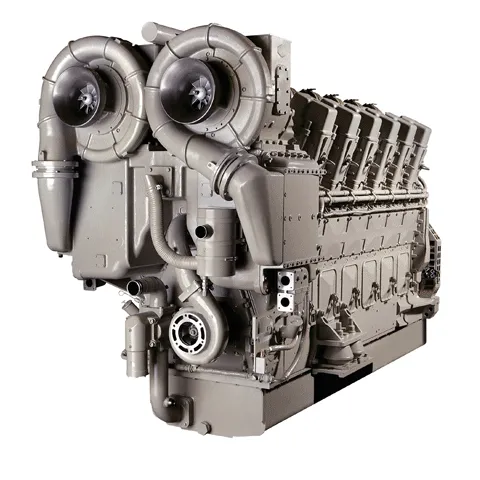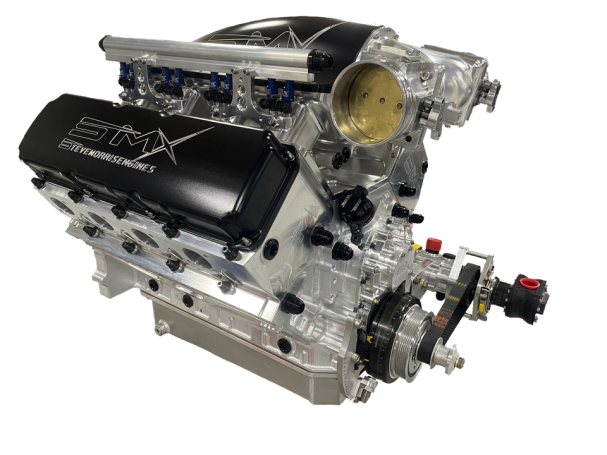Improve Your Fleet with Engines For Africa's Option
Improve Your Fleet with Engines For Africa's Option
Blog Article
A Full Overview to Picking the Right Engine for Your Project
Choosing the proper engine for your project is a crucial choice that can dramatically impact its total success. It is critical to thoroughly specify your project needs, evaluate efficiency requirements, and consider user-friendliness along with various other necessary variables. Furthermore, recognizing the community assistance available and inspecting cost implications can further fine-tune your selection. Each of these aspects plays a critical function in making certain that your chosen engine not only satisfies instant objectives however additionally aligns with long-term desires. As we check out these considerations, you might find that the nuances of each aspect disclose more than at first expected.
Define Your Project Needs
Defining your project requires is a vital action in selecting the appropriate engine for successful execution. A detailed understanding of your job's purposes will certainly direct you in determining the attributes and capacities required from an engine. Begin by detailing the extent of your task, consisting of the wanted performance, target market, and the specific outcomes you aim to accomplish.
Following, think about the technological demands that align with your project objectives. This includes examining the compatibility of the engine with existing systems, as well as the programming languages and frameworks that will be used. Furthermore, assess the degree of scalability needed to fit future growth or adjustments in demand.
Spending plan constraints also play a vital duty in defining your task requires. Develop a clear financial framework to guide your decision-making procedure, ensuring that the engine selected fits within your budget while giving the required capability.
Evaluate Efficiency Requirements

Engines that sustain straight scaling are usually better for larger applications. Additionally, review the engine's efficiency under various problems, such as peak usage scenarios, to ensure it fulfills your dependability criteria.
Think About Ease of Use
While technological specifications are necessary, the simplicity of usage of an engine can dramatically influence the development procedure and total task success. An instinctive interface, clear documentation, and streamlined workflows can considerably reduce the learning curve for developers, allowing them to focus on creativity and problem-solving instead of coming to grips with complicated tools.
When evaluating an engine's simplicity of use, take into consideration the onboarding experience. A well-structured intro, complete with tutorials and sample jobs, can help with a smoother transition for new individuals. In addition, the clarity and comprehensiveness of the engine's documentation play an important function; detailed guides and API references can encourage developers to repair and execute attributes effectively.
One more aspect to think about is the engine's modification capabilities. An engine that enables simple adjustments can be a lot more easy to use, as programmers can tailor it to fit their certain requirements without substantial trouble. Lastly, examine the operations combination with devices and platforms you currently utilize. A natural community can boost productivity and reduce friction throughout the development process. Eventually, picking an engine that focuses on convenience of use can cause a more effective and pleasurable advancement experience.
Assess Area and Assistance
The toughness of an engine's area and support network can substantially influence a developer's experience and success. A dynamic community often shows a wealth of common expertise, sources, and repairing aid that can boost your job's development process. When evaluating an engine, consider the dimension and activity level of its area. Larger communities normally use a lot more forums, tutorials, and third-party plugins, allowing designers to find remedies a lot more successfully.
Furthermore, review the schedule of official assistance channels. Trusted documents, responsive consumer support, and normal updates are crucial for resolving technological concerns and maintaining your job visite site on the right track. Engines For Africa. Energetic communities also promote partnership, offering opportunities for networking and responses, which can be invaluable, especially for small groups or independent programmers
Furthermore, explore the visibility of community-run events, such as hackathons or meetups. These events can improve your understanding of the engine while linking you with seasoned individuals and possible collaborators. In recap, a robust neighborhood and support group not just simplify growth but additionally create an atmosphere helpful to learning and innovation, inevitably boosting the chance of your project's success.
Contrast Price and Licensing Alternatives
Budget factors to consider play a crucial role in selecting the best engine for your project, as the cost and licensing choices can substantially affect both short-term expenses and long-term practicality. Engines For Africa. Different engines supply differing rates frameworks, which can consist of one-time purchase fees, subscription versions, or revenue-sharing arrangements based upon your job's incomes

Accrediting options also differ substantially. more information Some engines are open-source, supplying adaptability and community-driven assistance, while others may require exclusive licenses that limit use and distribution. Comprehending the implications of each licensing design is essential, as it impacts possession civil liberties, future scalability, and possible lawful commitments.
Verdict
In conclusion, picking the proper engine for a job necessitates a detailed evaluation of specified job needs, performance needs, simplicity of use, area support, and expense factors to consider. By systematically attending to these crucial aspects, decision-makers can make sure alignment with both future and current project needs. A well-informed selection eventually improves the possibility of job success, making it possible for effective source appropriation and optimizing possible results within the defined financial restrictions.
Choosing the appropriate engine for your task is a vital choice that can dramatically impact its overall success.Specifying your job requires is a critical action in choosing the ideal engine for effective application. A detailed understanding of your project's objectives will assist you in recognizing Read Full Article the features and abilities needed from an engine.When you have a clear understanding of your job requires, the next action is to evaluate the performance requirements of the engine.In verdict, picking the ideal engine for a project necessitates a thorough examination of defined task requirements, efficiency demands, simplicity of usage, area assistance, and expense factors to consider.
Report this page